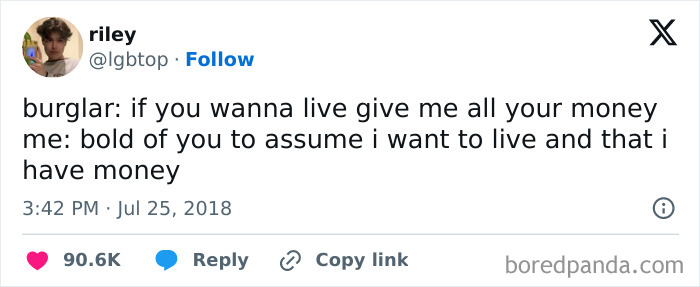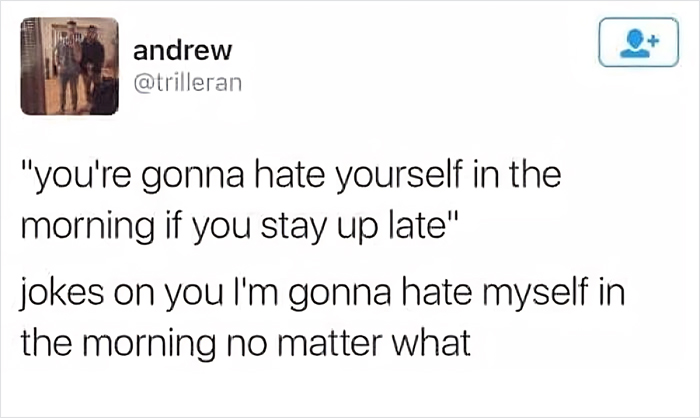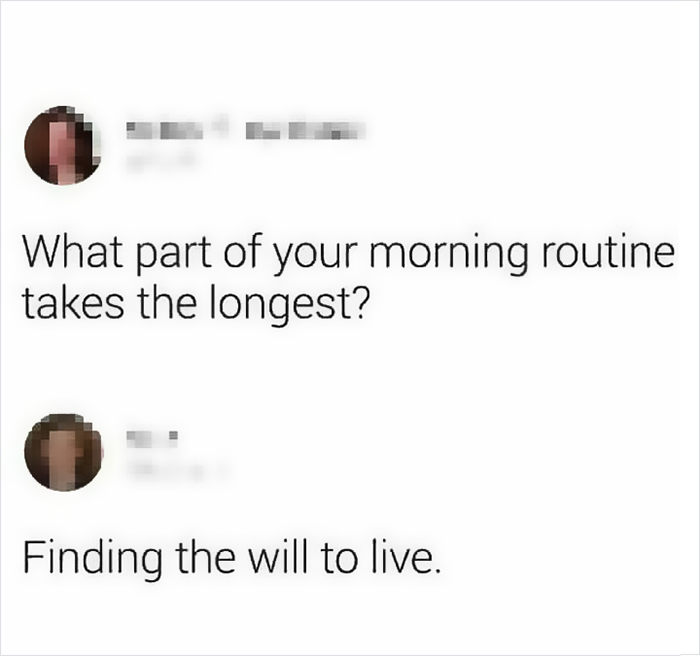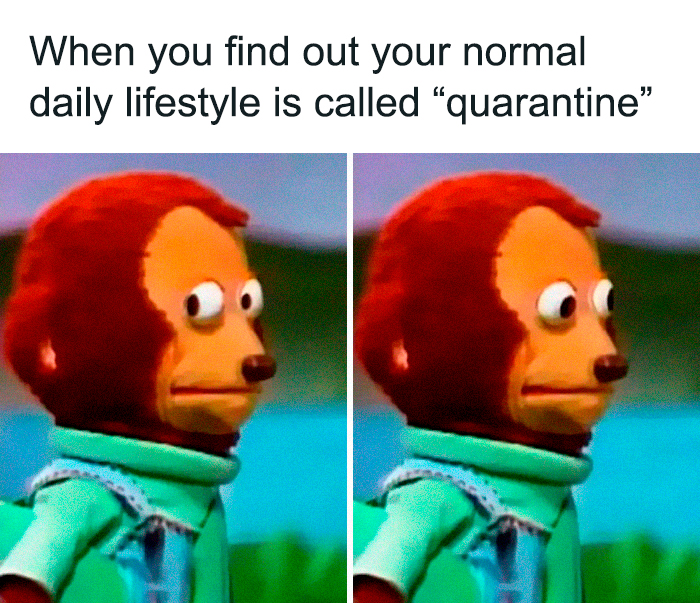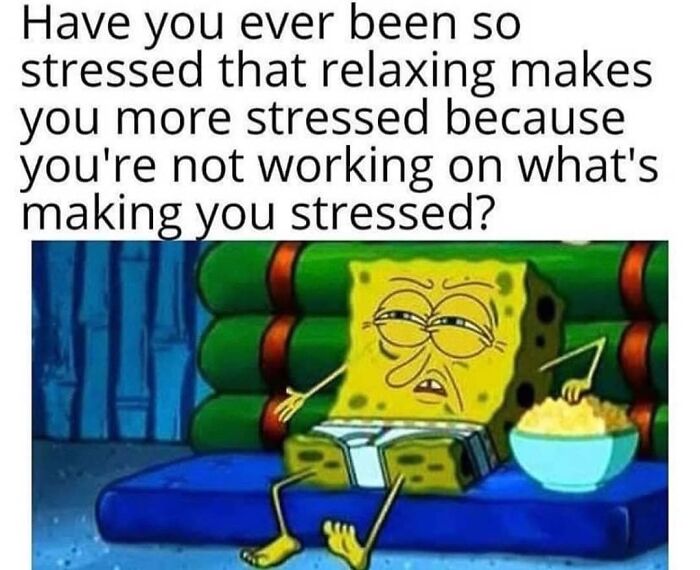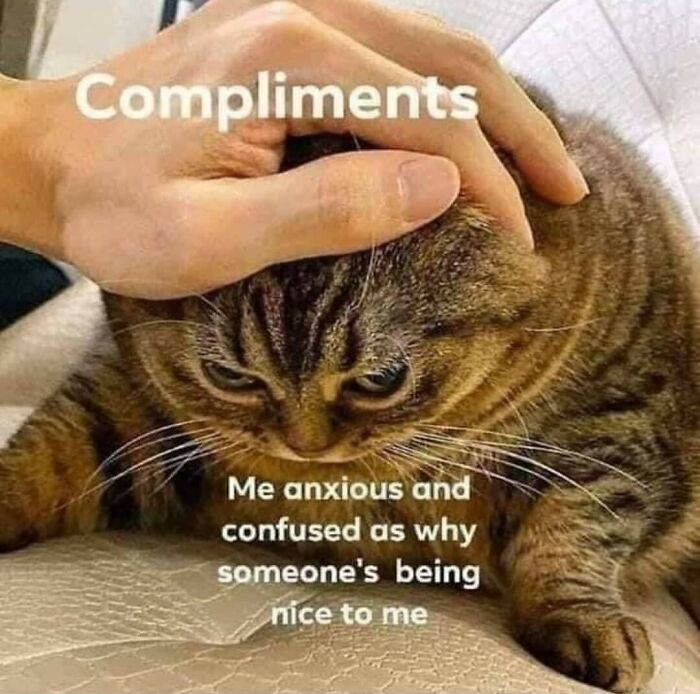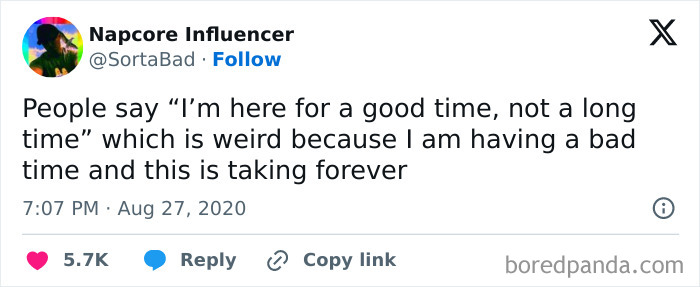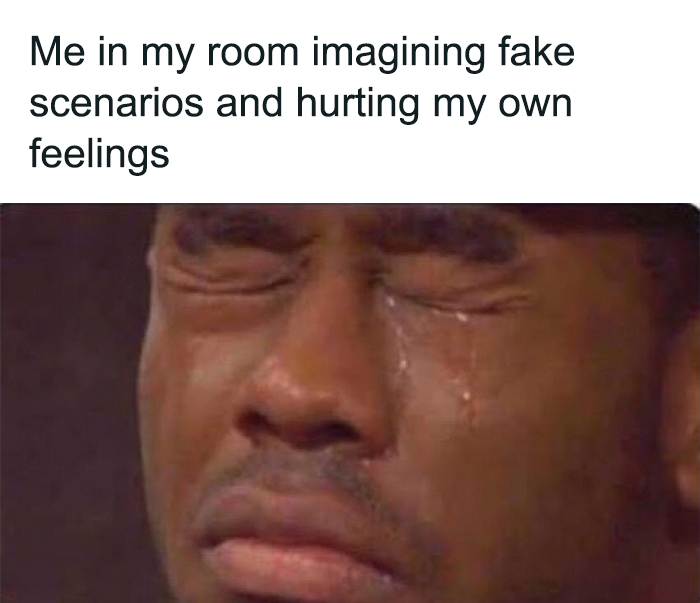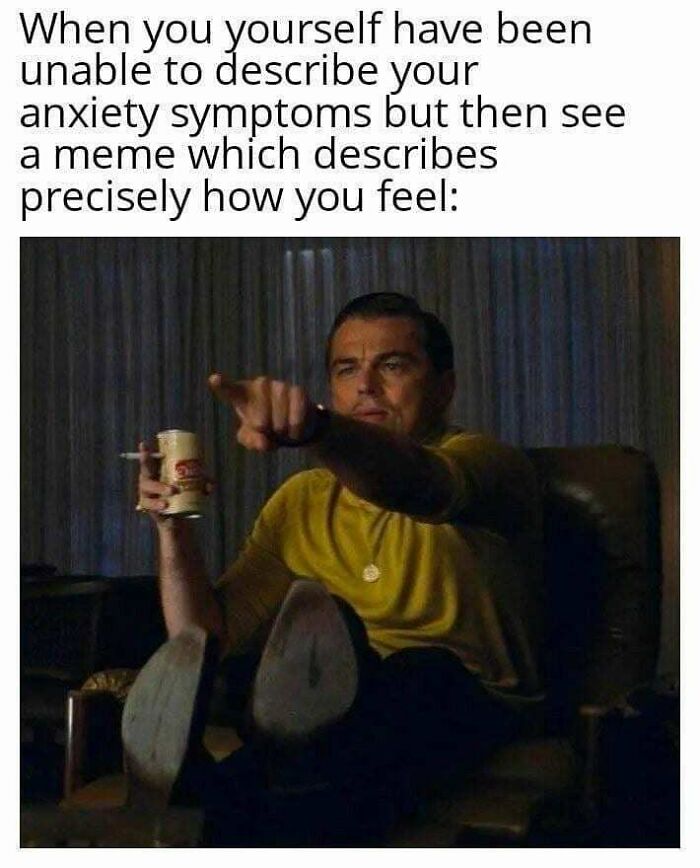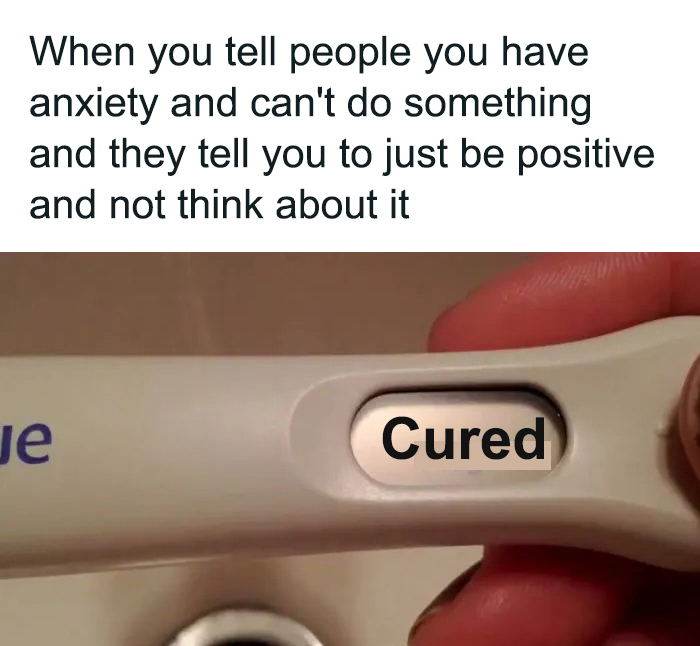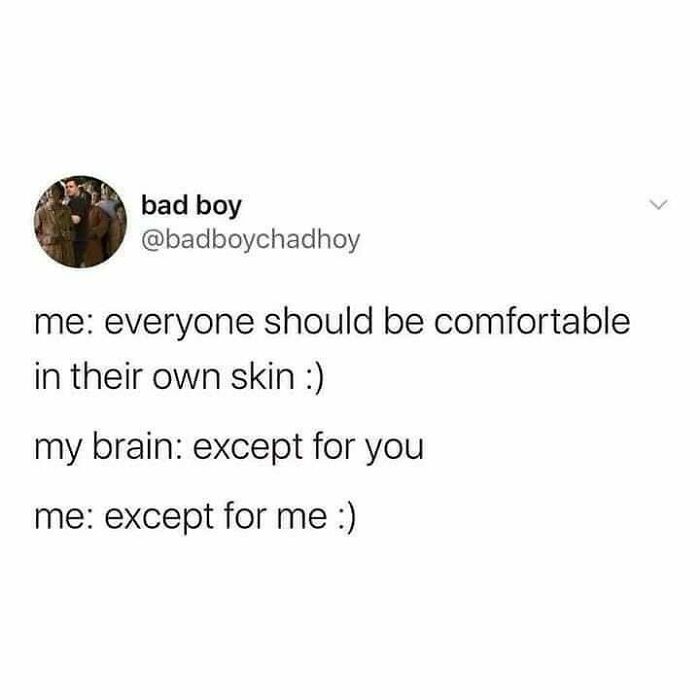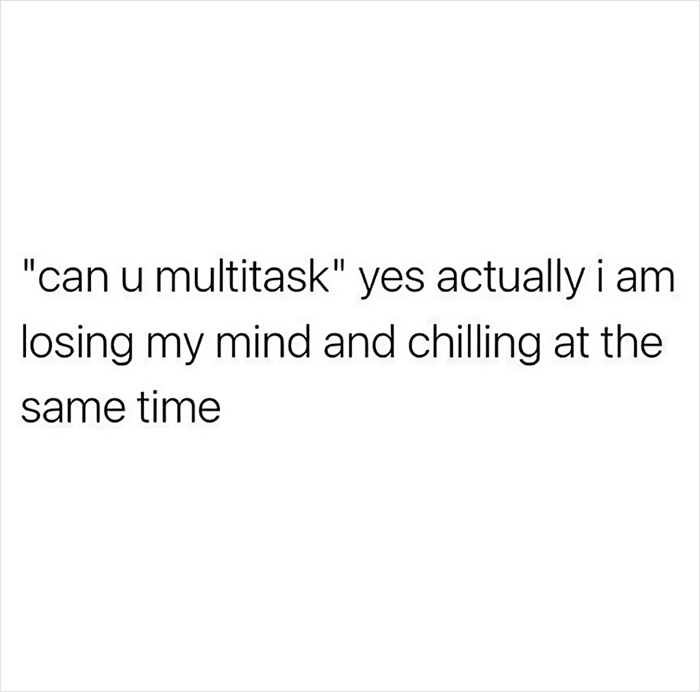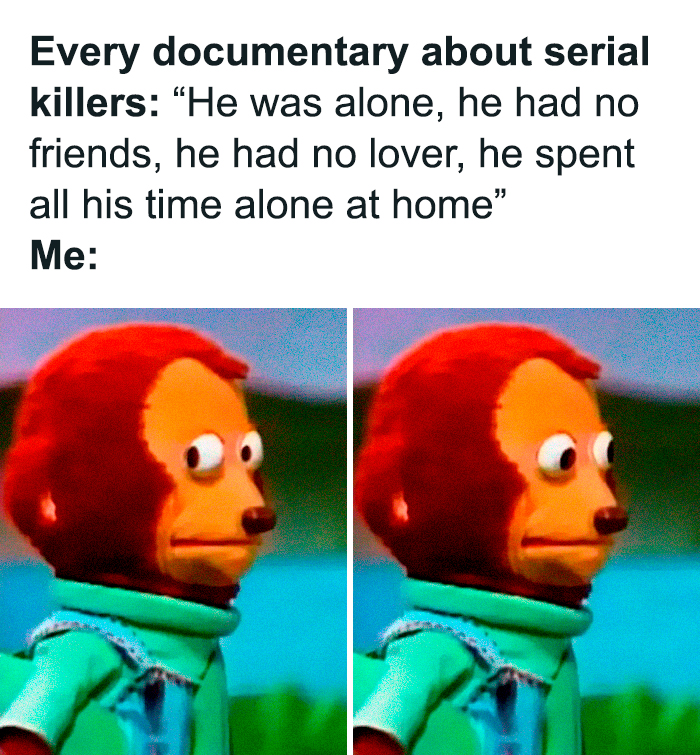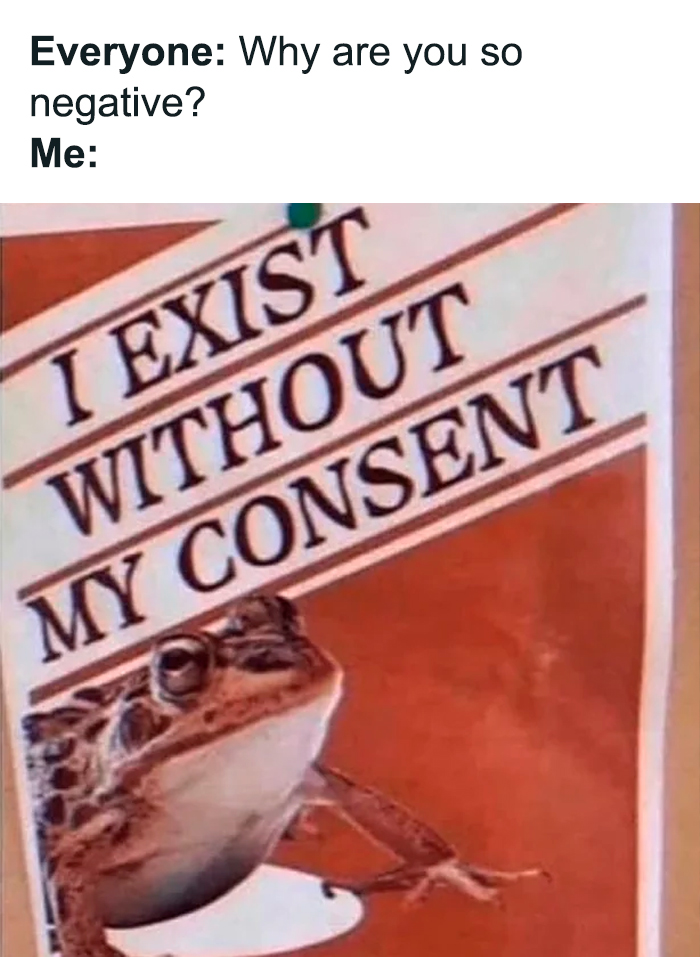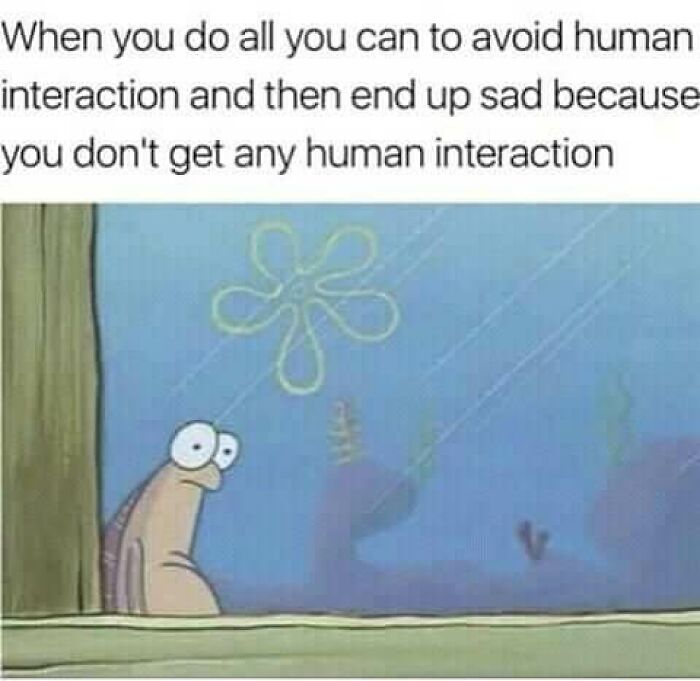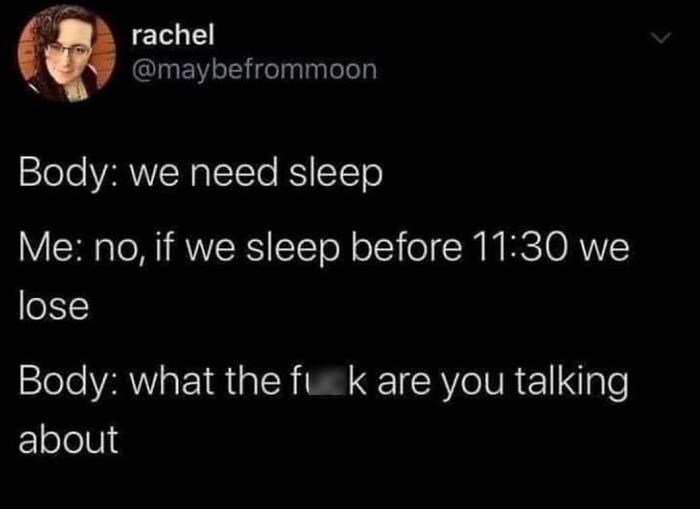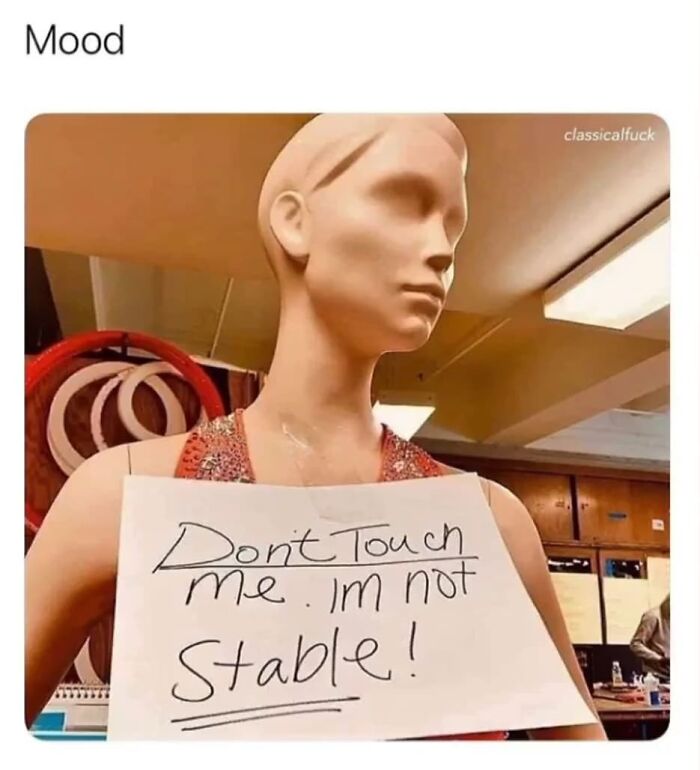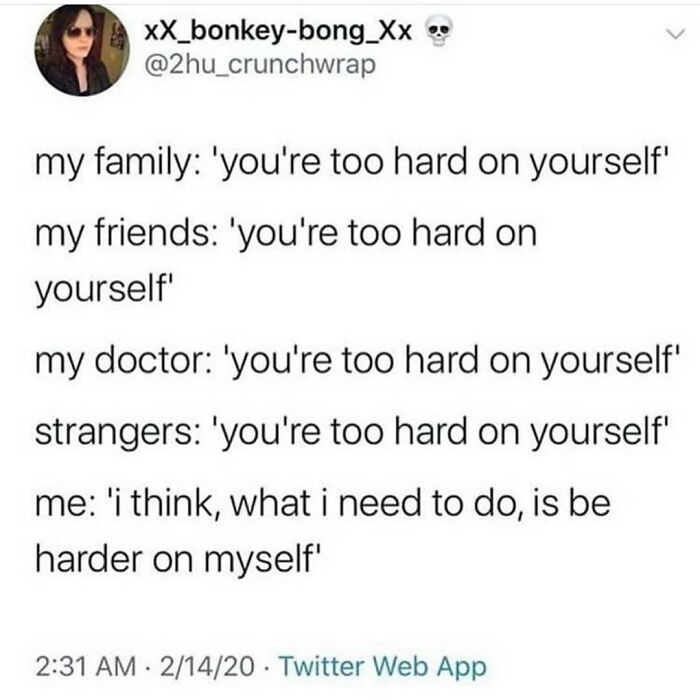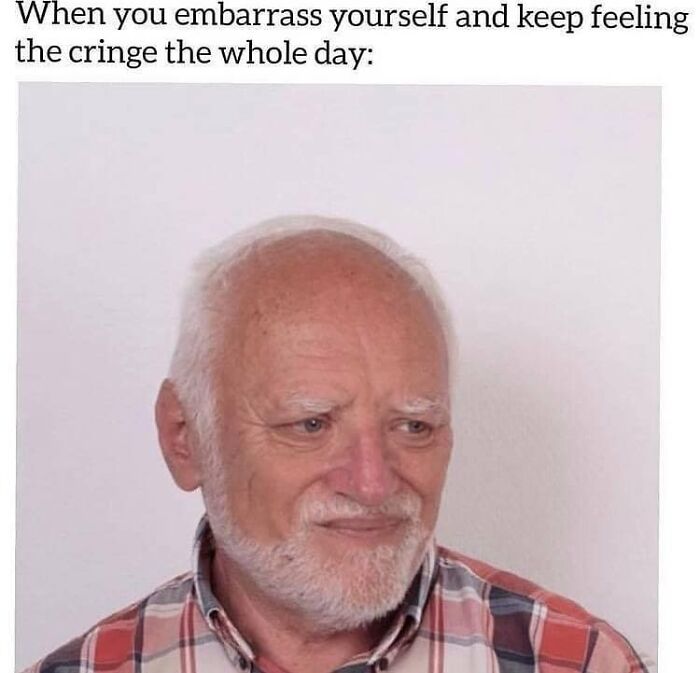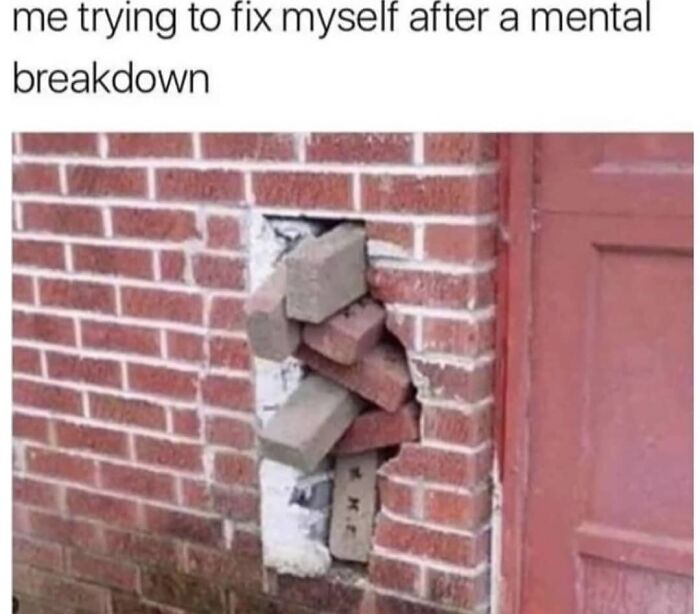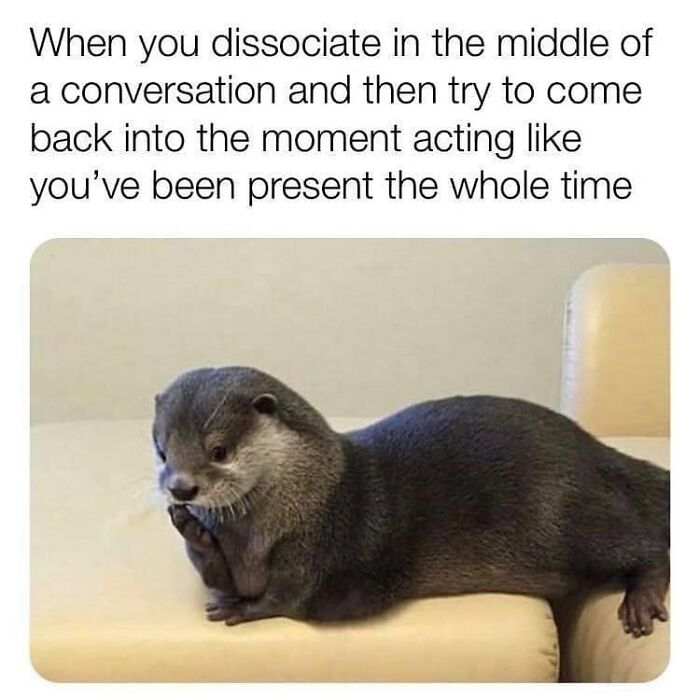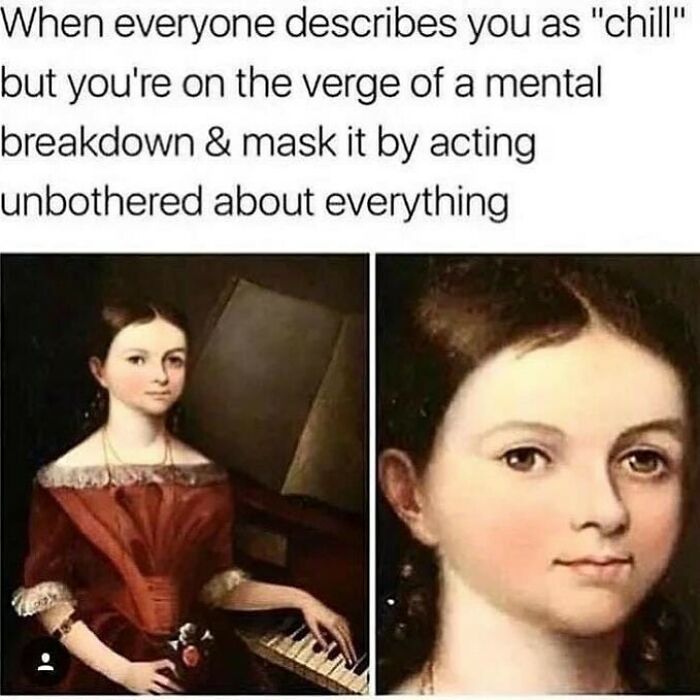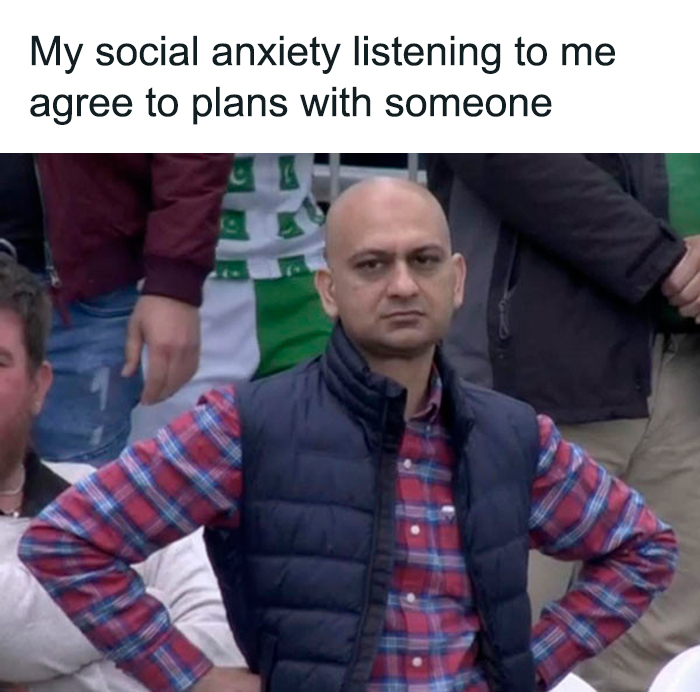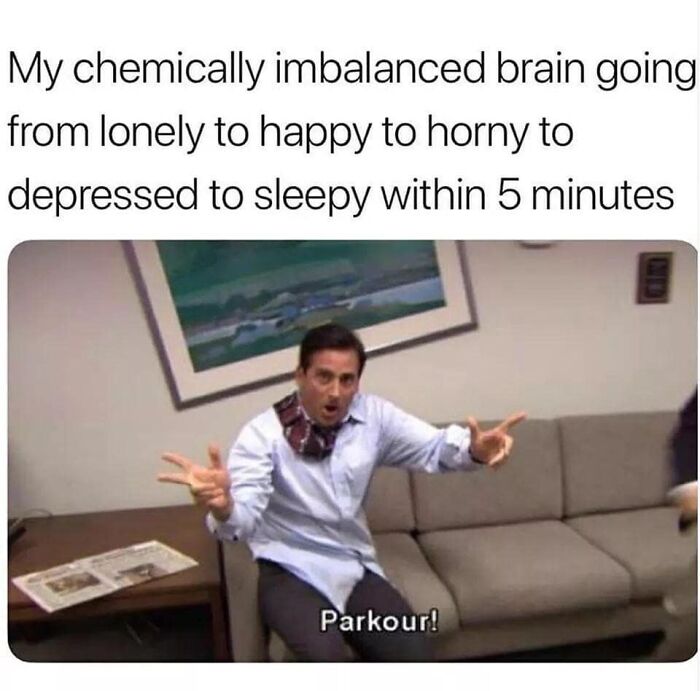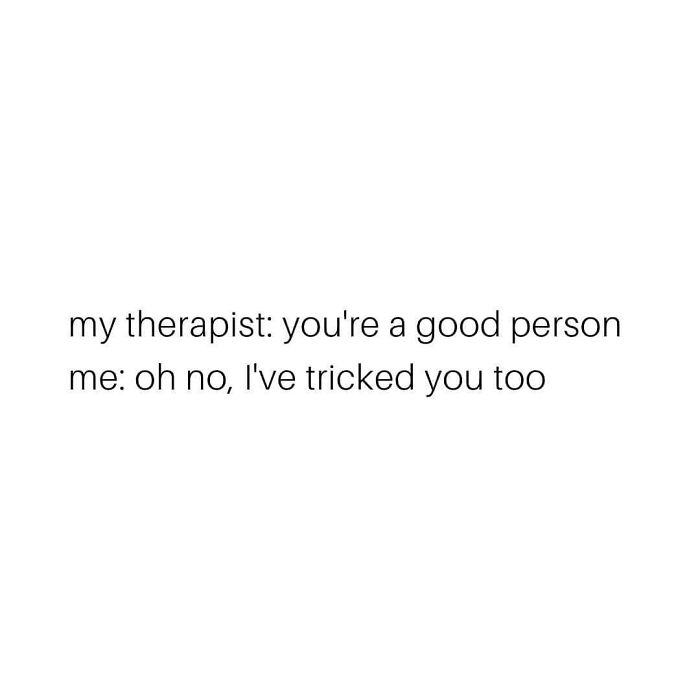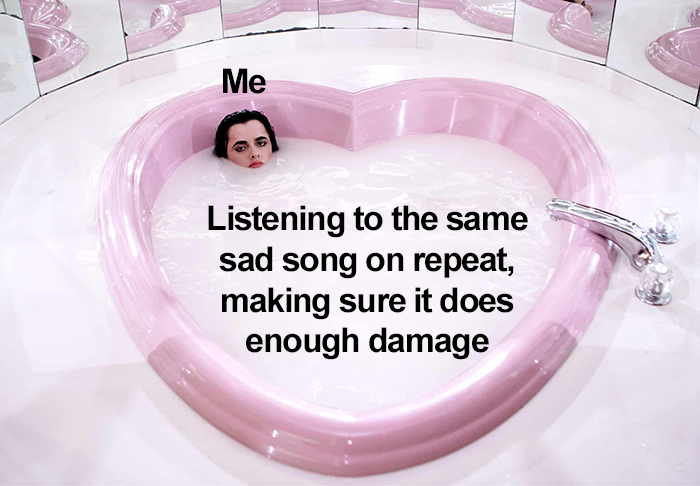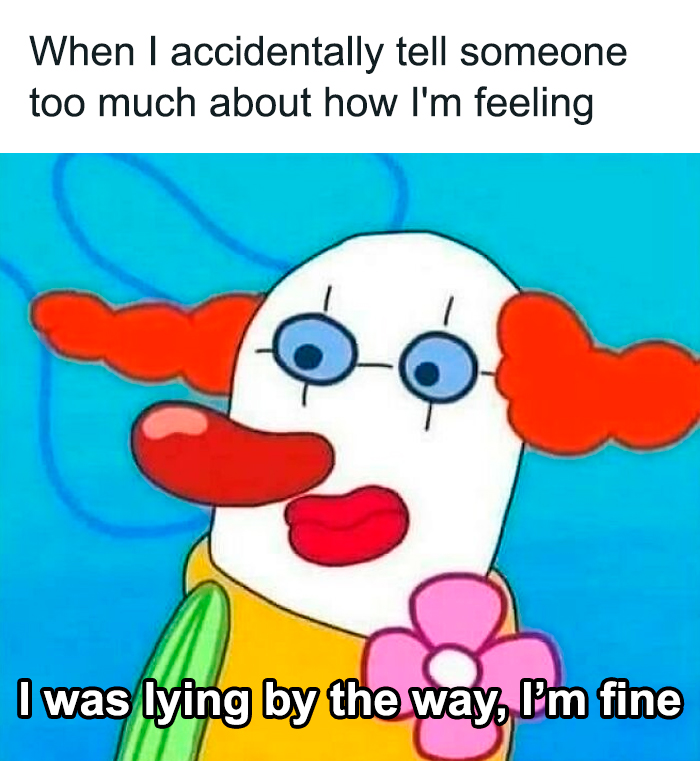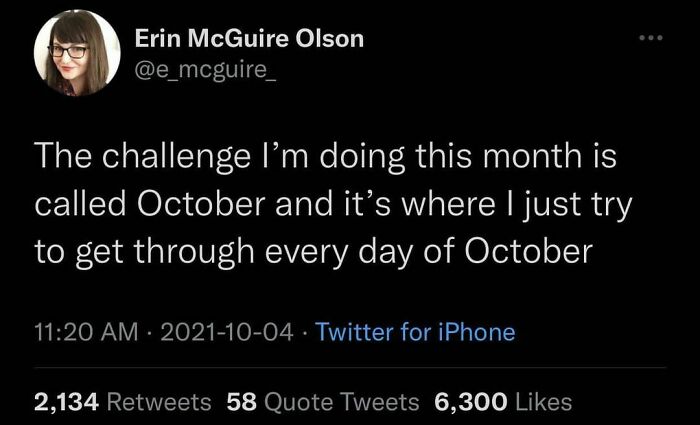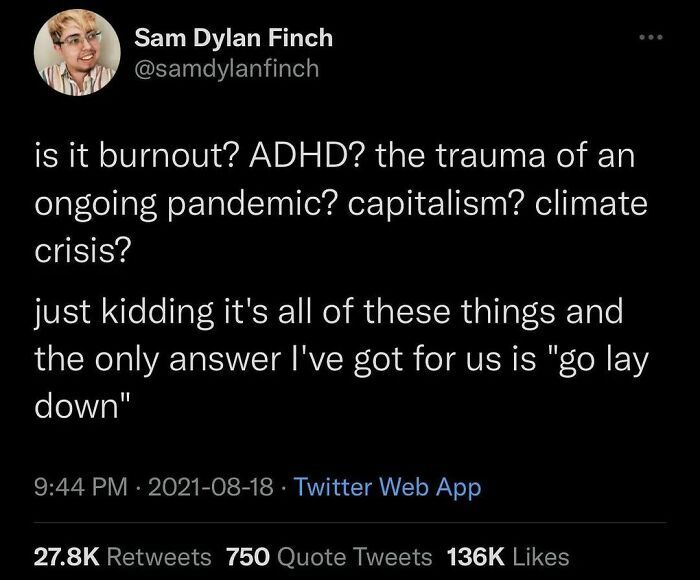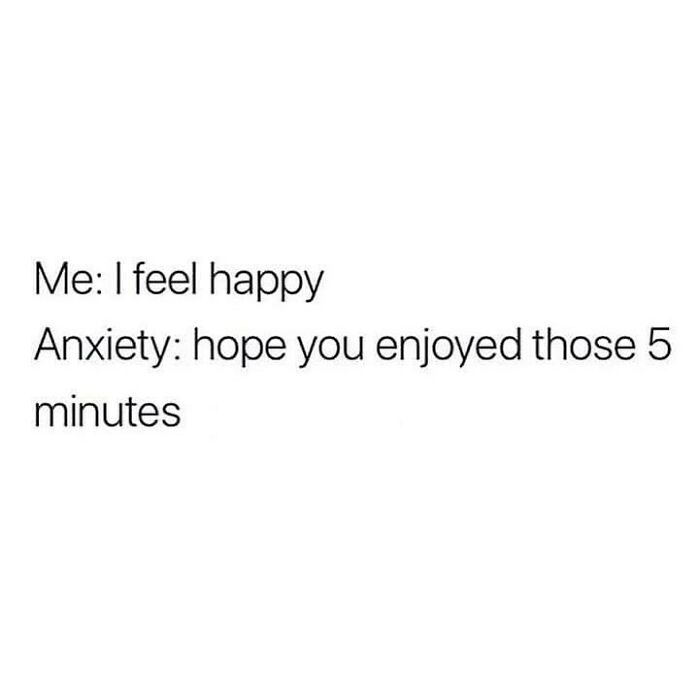When it comes to memes, nothing is off the table, even mental health. Licensed Clinical Psychologist and Professor Lynn Zubernis, Ph.D., writes that memes can actually help us cope. The humor and communication that they can provide help us deal with anxiety and stress. And when we relate to them, it validates our sadness and our struggles. Full of such memes is the page “Just Nihilist Things.” Its creator simply shares content they find funny. Why? “Well, I don’t know either since none of this really matters,” the page’s bio reads in a very fitting manner. If few things in the world make sense anymore, perhaps this collection of memes will? Bored Panda reached out to Dr. Benjamin Burroughs, associate professor of Emerging Media at the University of Nevada, Las Vegas (UNLV), and he kindly agreed to share his expertise with us. His research focuses on social media and digital journalism, so we asked him how memes about mental health fit into the larger context of Internet culture. We also asked Dr. Janina Scarlet of Superhero Therapy to weigh in on the effect of mental health memes. Read the insights from both experts below! Dr. Benjamin Burroughs Dr. Janina Scarlet | Twitter | Facebook | Instagram Licensed Clinical Psychologist Dr. Janina Scarlet believes that memes about mental health can have a positive effect for people who struggle with mental health issues. “I find that individuals with anxiety and depression often feel invalidated and unseen in their experiences,” Dr. Scarlet tells Bored Panda. “As such, well-researched and supportive memes can significantly benefit people with anxiety and depression by destigmatizing their experiences and make them feel less alone. At the same time, memes that are not well-researched might be damaging to people with anxiety and depression because they can add to those individuals’ suffering and experiences of being unseen, unheard, and undervalued.” Dr. Scarlet says that whether memes can shape societal attitudes toward mental health depends on their content and who’s creating them. “Some mental health themes have been extremely helpful and are suggestive of societal understanding and destigmatizing of these experiences.” “Sometimes, seeing a meme, hearing a song, or seeing another piece of media that reflects one’s own experience of suffering can not only be helpful, it can give that individual hope and can, in some instances, be life-saving.” As we’ve mentioned above, memes can actually help with issues like anxiety and stress. Associate professor of Emerging Media, Dr. Benjamin Burroughs, tells us that it’s because Internet memes can be a great source of humor and release. “Memes often work so well within the clutter of modern social media and digital life because they can quickly and humorously puncture the quotidian.” He notes that memes can be both beneficial and harmful to individuals who struggle with mental health conditions. “They can make social media platforms lighter and grant moments of joy within the heaviness or negativity that can algorithmically dominate some social media channels and platforms. On the other hand, these memes can be jarring and constant reminders of trauma that is embedded within the humor.” Because we see our friends and peers only post positive things about their lives, this creates a false image in our heads that everyone else’s life is perfect except for ours. But memes about mental health struggles subvert the happiness effect. Follow Bored Panda on Google News! Follow us on Flipboard.com/@boredpanda! Please use high-res photos without watermarks Ooops! Your image is too large, maximum file size is 8 MB.



